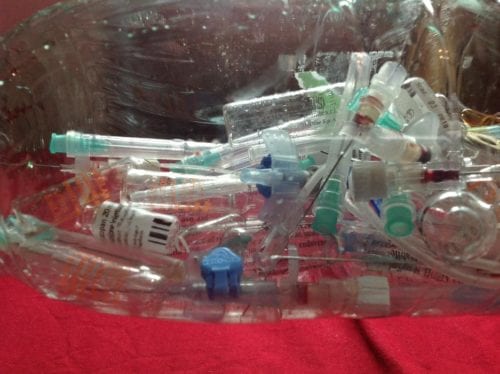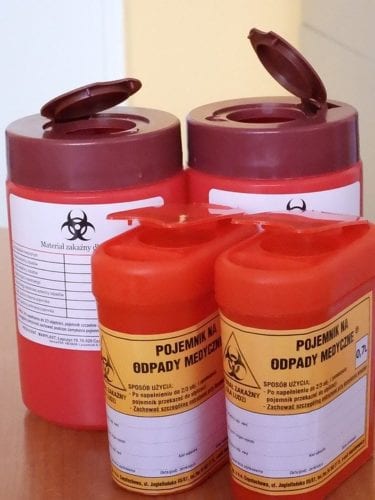Charlotte, NC – Biohazard Waste Cleanup Services in Mecklenburg County
Posted in: Industry News

Wondering what constitutes medical biohazard waste? Read on to find out the types of biohazard waste and how to get rid of it!
Medical biohazard waste is any waste that contains infectious material that can damage your health upon direct contact. It can be waste products from healthcare facilities such as hospitals, laboratories, dentist offices, medical research offices, and veterinary clinics. It is waste and byproducts that are generated from medical testing, research, and treatment of humans and animals. If handled unprofessionally and without care, it can lead to some dire consequences and the spread of severe illnesses. This is why healthcare facilities need to hire professional biohazard cleanup services to get rid of their biohazard waste.
Let’s take a look at the types of biohazard waste.
Solid Waste
Solid biohazard waste is essentially any non-sharp material that contacts animal or human specimens. Petri dishes, PPE, linens, towels, and pipettes are all considered to be solid biohazard waste. These waste products should be contained in a designated container that’s lined by an autoclave bag with a prominent biohazard symbol. Solid waste can be disposed of via autoclaving.
Liquid Waste
Blood and other body fluids that might contain any infectious agents fall under the liquid biohazard waste category. However, if this liquid waste is less than 25 milliliters, then it can be disposed of as solid waste. Liquid biohazard waste needs to be contained in leak-proof containers that are tagged with the biohazard sign. These containers should be kept in a secondary container so that they don’t tip over. Liquid waste can be disposed of via autoclaving.
Sharp Waste
Sharp biohazard waste includes anything that can puncture your skin such as needles, scalpels, microscope slides, broken glass vials. These objects that might have been exposed to infectious agents within the human or animal body need to be disposed of safely. They should be contained in special containers that are leak-proof, resistant to punctures, and completely safe to handle. These containers should be labeled with the right biohazard symbol and a symbol that identifies them.
Pathological Waste
Any human or animal organ, body part, or tissue that’s removed from the body is considered to be pathological biohazard waste. This is because any of these waste products can contain infectious agents. Waste materials from biopsies also fall under this category. Similarly, anatomical parts that are removed from the body during autopsies are also considered to be pathological wastes. This type of waste should be double-bagged to prevent leaks and then kept in a secondary container. It’s usually disposed of by incineration or some chemical treatment.
Microbiological Waste
Microbiological waste includes disposable culture dishes, cultures from a specimen, discarded viruses, devices that are used to mix cultures, etc. This waste is usually produced in laboratories. It contains microorganisms and infectious agents and might contain pathogenic organisms. Microbiological waste is often disposed of via autoclaving.
The best and safest way to get rid of medical biohazard waste is to hire a professional biohazard waste cleanup company. They have the appropriate knowledge, skills, protective gear, and tools needed to take care of the waste material safely and effectively.
If you are looking for reliable biohazard waste cleanup services, then visit our website today!
Return to: Charlotte, NC – Biohazard Waste Cleanup Services in Mecklenburg County
Social Web